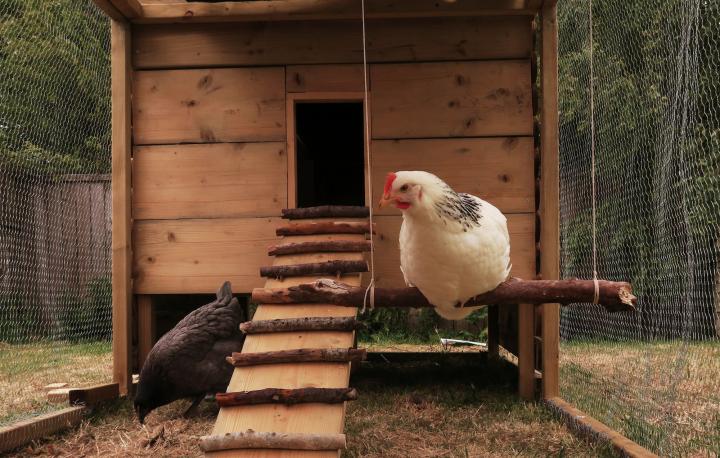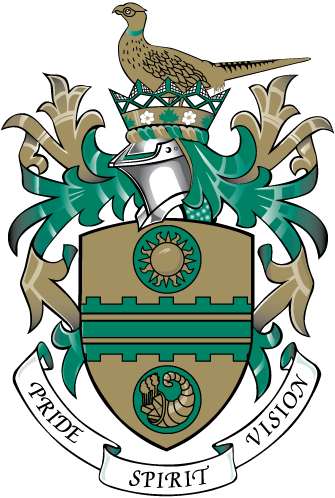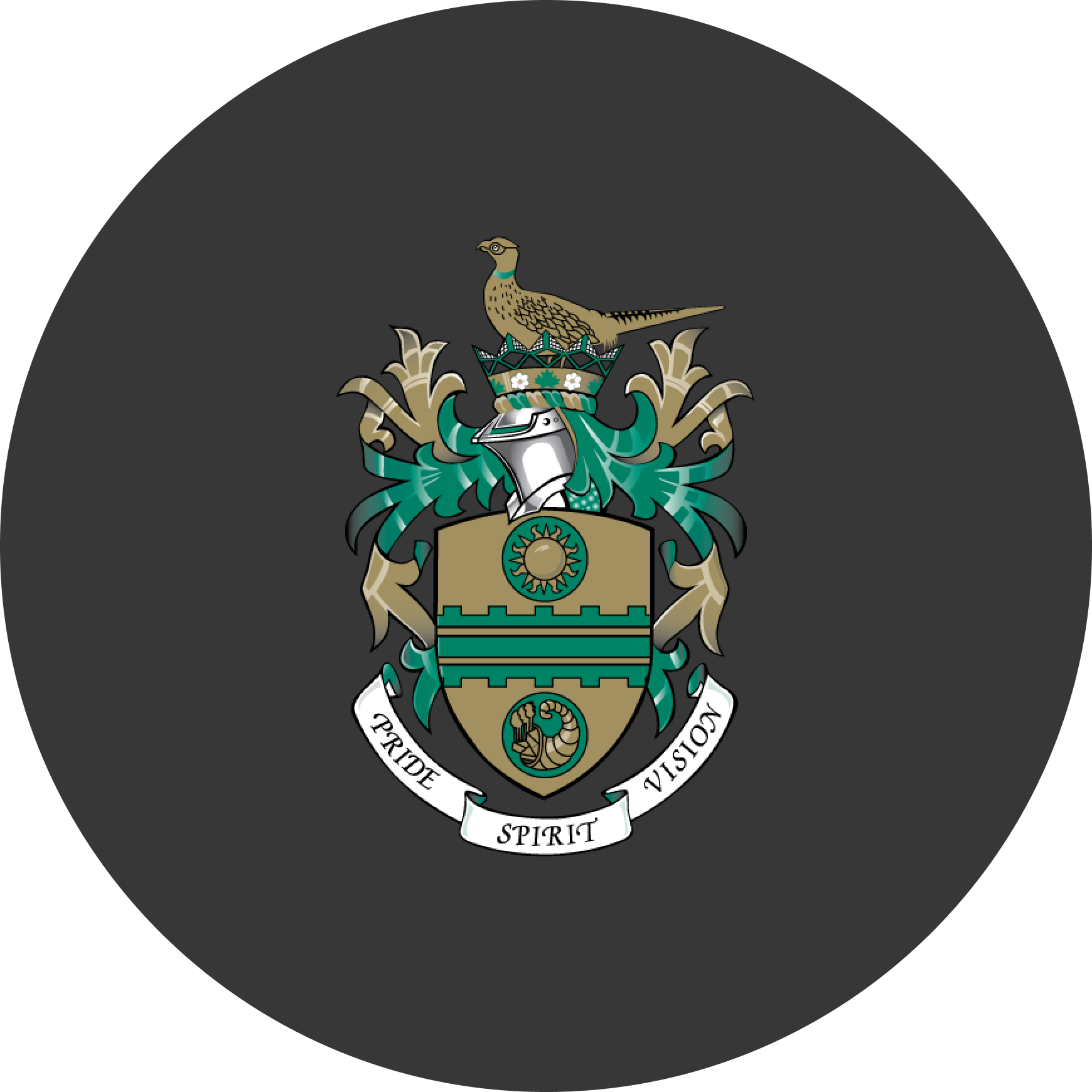Keeping of Animals
The City of Armstrong’s bylaws set standards, boundaries, acceptable conduct, and values based on the Community Charter and needs of the City. Bylaw Officers investigate complaints received from the public. These include Regulatory Bylaws such as Dog Care Control, Good Neighbor, Zoning.

Keeping of Animals
The City of Armstrong’s bylaws set standards, boundaries, acceptable conduct, and values based on the Community Charter and needs of the City. Bylaw Officers investigate complaints received from the public. These include Regulatory Bylaws such as Dog Care Control, Good Neighbor, Zoning.
Keeping of Chickens & Chicken Coops

As part of City efforts to allow residents to get involved in their own urban food production, you can now keep chickens in your backyard on single family urban area lots that are more than 600m2. There are several important rules you will need to comply with in order to keep a backyard chicken coop from being a nuisance for your neighbours, including:
| A maximum of 6 hens per lot, on lots greater than 600m2 but less than 2 Acres. |
| Roosters are not allowed in Residential lots. |
| Ducks, turkeys, or other fowl other than hens are not allowed on Residential lots |
| Eggs, meat, or manure cannot be used for commercial purposes. |
| Slaughtering of chickens on the property is not allowed. |

Keeping of
Chickens & Chicken Coops
As part of City efforts to allow residents to get involved in their own urban food production, you can now keep chickens in your backyard on single family urban area lots that are more than 600m2. There are several important rules you will need to comply with in order to keep a backyard chicken coop from being a nuisance for your neighbours, including:
| A maximum of 6 hens per lot, on lots greater than 600m2 but less than 2 Acres. |
| Roosters are not allowed in Residential lots. |
| Ducks, turkeys, or other fowl other than hens are not allowed on Residential lots |
| Eggs, meat, or manure cannot be used for commercial purposes. |
| Slaughtering of chickens on the property is not allowed. |
Please review the information below prior to submitting an application:
To apply, please submit the Application and the Premises ID Registration below:
To apply, please submit the Application and the Premises ID Registration below:
Keeping of Bees & Bee Hives
As part of City efforts to allow residents to get involved in their own urban food production, you can now keep honeybees in your backyard on single family urban area Lots that are more than 600m2. There are several important rules you will need to comply with to keep a backyard hive from being a nuisance for your neighbours, including:
| A maximum of 3 hives or nuc’s per lot, on lots greater than 600m2 but less than 2 Acres. |
| Honey may not be sold for commercial purposes. |


Keeping of Bees & Bee Hives
As part of City efforts to allow residents to get involved in their own urban food production, you can now keep honeybees in your backyard on single family urban area Lots that are more than 600m2. There are several important rules you will need to comply with to keep a backyard hive from being a nuisance for your neighbours, including:
| A maximum of 3 hives or nuc’s per lot, on lots greater than 600m2 but less than 2 Acres. |
| Honey may not be sold for commercial purposes. |
Please review the information below prior to submitting an application:
To apply, please submit the Application and the Premises ID Registration below:
To apply, please submit the Application and the Premises ID Registration below:
Keeping of Companion Animals
Companion Animal pertains to any species of cats, rabbits, guinea pigs, rodents, birds, and reptiles (Not Dogs) residing within a premise as part of the household but does not include animals regulated under the Wildlife Act.
No companion animals will become a nuisance animal to neighbours. If the City of Armstrong receives complaints, the owner of the companion animal may be subject to enforcement actions.


Keeping of Companion Animals
(excluding dogs)
Companion Animal pertains to any species of cats, rabbits, guinea pigs, rodents, birds, and reptiles (Not Dogs) residing within a premise as part of the household but does not include animals regulated under the Wildlife Act.
No companion animals will become a nuisance animal to neighbours. If the City of Armstrong receives complaints, the owner of the companion animal may be subject to enforcement actions.
Keeping of Livestock
Livestock pertains to cattle, horses, sheep, goats, swine, rabbits, fish, farmed game, poultry, domesticated fowl, or exotic animals as prescribed by the Minister responsible for the administration of the Farm Practices Protection (Right to Farm) Act.


Keeping of Livestock
Livestock pertains to cattle, horses, sheep, goats, swine, rabbits, fish, farmed game, poultry, domesticated fowl, or exotic animals as prescribed by the Minister responsible for the administration of the Farm Practices Protection (Right to Farm) Act.
How Do I Learn More
Whether you are interest in learning more about the process or already keeping chickens or bees in your backyard, we encourage you to contact us to learn more. The City of Armstrong Staff are eager to do our part to assist you throughout the process.
Call 1-250-546-3023 or email info@cityofarmstrong.bc.ca
How Do I Learn More
Whether you are interest in learning more about the process or already keeping chickens or bees in your backyard, we encourage you to contact us to learn more. The City of Armstrong Staff are eager to do our part to assist you throughout the process.
Call 1-250-546-3023 or email info@cityofarmstrong.bc.ca
About Armstrong
The City of Armstrong is a friendly community with a beautiful trails network, bustling downtown core and peaceful family-friendly atmosphere.
We welcome all those who wish to visit, live, or invest in this peaceful little city. Armstrong considered the “Heart of Country” is located in the heart of Spallumcheen Valley, between the sunny Okanagan and the bright Shuswap Valleys.

